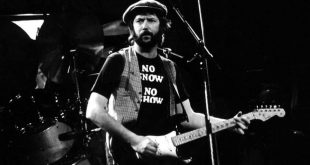The Eagles are best known for their prolific output throughout the 1970s, releasing six iconic albums that defined classic rock. Yet, few remember how challenging the creation of their seventh album, Long Road Out of Eden (2007), truly was. The band began work on the record in 2001, but it took an arduous six years to complete the 20 tracks featured on the album—nearly the same amount of time it took to produce their previous six albums combined.
The delay wasn’t due to a lack of passion, but rather a complicated and prolonged production process. The band was eager to reunite and make music together after years apart, yet fate had other plans. On September 10, 2001, the Eagles arrived at the studio, ready to start recording their first album in over two decades. However, the world changed overnight.
The Impact of September 11 on the Eagles’ Creative Process
When the band woke up to the news of the September 11 terror attacks, the recording sessions were immediately put on hold. As Glenn Frey later recalled,
“After hearing the news, we called each other up and said, ‘What’s the point? I don’t think there’s anything worth showing up for today.’”
That day of silence and reflection sparked something unexpected: inspiration. Drummer and co-vocalist Don Henley found himself deeply moved by the tragedy. Instead of despairing, he channeled his emotions into music. Sitting at the piano in his home studio that evening, Henley began composing what would become the haunting ballad Hole in the World.
“I started putting some chords with the phrase ‘hole in the world.’ Just sort of wrote the refrain in one sitting. After that, the first verse came fairly quickly, and then I was stuck,” Henley shared.
A Song Born From Tragedy and Extended Reflection
Unlike a sudden burst of creativity, Hole in the World was a slow-burning project. Months passed before Henley shared the unfinished piece with his bandmates. It wasn’t until further global events—like the outbreak of the Iraq War—provided additional emotional context that the song took on deeper meaning and gained momentum.
Henley recalled collaborating with Glenn Frey to refine the piece:
“I took my unfinished piece to the studio and showed it to Glenn. He eventually wrote the second verse. We started a third verse but scrapped it to keep the song simple.”
Originally envisioned as a short snippet akin to the brief, poignant vignettes The Beatles included on Abbey Road, Hole in the World was planned as a concise musical moment. Although the track did not ultimately appear on Long Road Out of Eden, it was released as a standalone single in 2003—amid ongoing wars and global unrest—making its message even more powerful.
The Beatles’ Influence on the Song’s Structure and Spirit
The connection to The Beatles is not just thematic but structural. The Eagles’ intent to craft a brief, impactful track mirrors the Fab Four’s use of short, evocative interludes. The simplicity and poignancy of Hole in the World evoke a similar emotional resonance to Beatles classics, where less is often more. The song’s title and refrain metaphorically capture a sense of loss and yearning that defined much of the post-9/11 cultural atmosphere.

Henley’s Reflection on America in the 21st Century
Don Henley’s commentary on the song’s meaning highlights the complexity of the modern era:
“The stars and stripes may be flying and the drums beating, but things are never going to be the same for some people. This is the 21st century. It’s complex, and people have forgotten about our history—if they ever really knew it in the first place.”
Hole in the World stands as a heartfelt artistic response to one of the most devastating events in recent history, carrying the legacy of classic rock into a new century marked by uncertainty and change.






